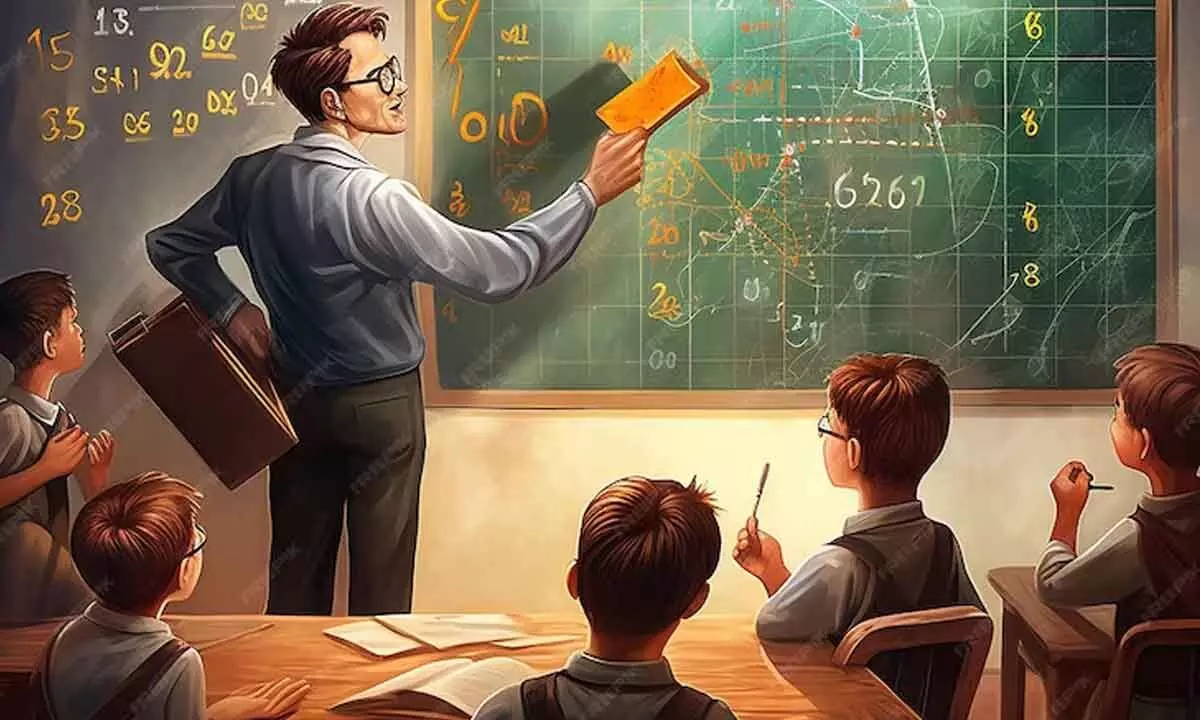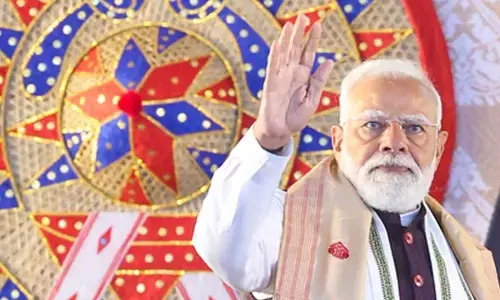ASER Report: A lesson for govt teachers

The Annual Status of Education Report (ASER) 2023 indicates that 43 per cent of children aged 14-18, of whom 25 per cent are from rural areas, cannot read sentences in English. The rural children struggle to read a class 2 level text fluently in their respective regional language. Even the enrolment rate of students has remained almost same as 2017. Then it was 86 per cent and now it is 86.8 percent that is the only difference.
But what is interesting is that more than 90 per cent of rural youth now have smart phones. How they use them and for what purpose is well known. The number of those having smart phones in 2017 was 73 per cent. What is more significant is that of the 90 per cent who use smart phones 43 per cent are male and 19.8 percent are females.
Such reports and data should not be just read and forgotten, nor should some intellectuals give lectures on it. A quick analysis of the ASER report clearly shows that our school education system is yet to be modified to drive students to become more future-oriented.
Now the question that needs to be looked at is whether there is a need to integrate the plus points of old system of education and the modern education? One thing is for sure. Our education system has developed a negative outlook towards the original Indian system of teaching and learning and are just importing ideas and implementing them without fine tuning them according to our needs.
The political executive and those who are responsible for finalisation of education policies easily get carried away by fancy names and tags and come with ideas without assessing to what extent our students can imbibe them as there is basic flaw in the education system right at the foundation level. There is lack of resources and informed people who can guide the kids properly. There is something that is drastically wrong with our school education system.
The big question now is why has India’s school education policy been so ineffective? Is there something wrong with our learning system? Has the school education policy become elitist and are politicians trying to impose their own ideas on education rather than take up a comprehensive need-based study and make it a fusion with earlier system? Without creating a strong foundation at the primary level, schools are introducing coaching for IITs and other competitive exams at a primary school level which results in unnecessary pressure on the students and does not really help them in any way.
Education basically has become a commercial venture. It is focussed on inputs not learning outcomes and has strong elitist bias in favour of higher education as opposed to primary or secondary education.
The salaries of teachers in government schools are relatively high in India. Not just that, they have guaranteed lifetime employment and post-retirement benefits, but they are not accountable to students. They have limited accountability either to the education department of bureaucracy.
Teachers are rarely reprimanded for non-performance, let alone fired. High absenteeism is routine. Even when present in schools, teachers often engage in activities other than teaching.
Poorly paid and less qualified contract teachers do a much better job than permanent teachers. Learning outcomes are also generally better in private schools where average teacher salaries and costs per student are less. Digital classes, giving laptops, mobile phones, tablets etc to students would not help much unless drastic changes are made at the level of primary education and unless a strong foundation is laid.















